The objective is to institutionalize and fully implement the viewpoints, goals, tasks, and solutions set forth in Resolution No. 71-NQ/TW.
To unify the action program and identify specific tasks so that ministries, agencies, and localities can develop action plans, organize implementation, and monitor and evaluate the implementation of Resolution No. 71-NQ/TW;
To realize the goal of expanding equitable access and improving the quality of preschool and general education to an advanced level in the Asian region; to enhance the capacity and quality of human resource training to meet the socio -economic development requirements of the country; and to elevate higher education institutions to become national centers of knowledge and innovation, so that by 2035 the education and training system continues to be modernized, making strong and steady progress in accessibility, equity, and quality. By 2045, Vietnam will have a modern, equitable, and high-quality national education system, ranking among the top 20 countries in the world.
In order to achieve the objectives set forth in Resolution No. 71-NQ/TW, ministries, ministerial-level agencies, government agencies, and people's committees of provinces and centrally-administered cities shall continue to effectively implement Resolution No. 29-NQ/TW on fundamental and comprehensive reform of education and training, Conclusion No. 91-KL/TW on continuing to implement Resolution No. 29-NQ/TW, and organize the vigorous, effective, and synchronized implementation of the following tasks:
Firstly, we need to raise awareness, innovate thinking and actions, and demonstrate strong political will to achieve breakthroughs in education and training development.
Ministries, agencies, and localities: participate with the Central Propaganda and Mass Mobilization Department in organizing a national conference to study and thoroughly understand Resolution No. 71-NQ/TW as directed by competent authorities. Raise awareness, determine political determination, and place the development of education and training within the national and social governance framework, linked to the orientation, planning, and strategies for socio-economic development. Make the viewpoints, objectives, tasks, and solutions for the development of education and training a central focus in the strategies, plans, policies, programs, and development plans of ministries, agencies, and localities, and prioritize the allocation of resources for their implementation.
Leading, directing, and raising awareness among civil servants, officials, and employees in educational management agencies and educational and training institutions regarding the innovation of management thinking and methods of action, shifting from administrative and pre-audit management to management and governance based on standards, evidence, outputs, and a culture of quality. Focusing on building a sustainable internal quality assurance system at educational institutions and continuously improving quality.
The Ministry of Education and Training, in coordination with other ministries, agencies, and localities, will develop, issue, and implement a plan for regular and extensive dissemination of Resolution No. 71-NQ/TW, diversifying forms and specifying the content of the communication. It will advise competent authorities on issuing regulations and guidelines for implementing the policy of not organizing school councils in public educational institutions (except for public schools with international agreements); and implementing the policy of having the Party Secretary also serve as the head of the educational institution.
The Ministry of Culture, Sports and Tourism directs press and media agencies to increase the duration and quality of news articles promoting the implementation of Resolution No. 71-NQ/TW and the Party's guidelines and the State's policies on breakthroughs in education and training development; consistently demonstrating the view that education and training is a top national priority, determining the future of the nation; and that the development of education and training is the undertaking of the Party, the State, and the entire people.
Secondly, we need to strongly reform institutions, creating unique and superior mechanisms and policies for the development of education and training.
Specifically, ministries, agencies, and localities should review and improve legal regulations, fully concretize the Party's guidelines and policies, and promptly remove institutional, mechanism, and policy bottlenecks in an open, flexible, interconnected, and synchronized manner; advise on the promulgation of specific and superior policies; prioritize budget allocation for the implementation of breakthrough policies and regulations; improve the quality and effectiveness of lawmaking and enforcement; and promote innovation and development in education and training.
Continue to promote decentralization, delegation of power, and the delineation of functions and tasks in a substantive and in-depth manner, linking authority with responsibility, and clearly defining the mechanisms for decentralization and delegation.
Strengthening the leading role of state management agencies in education and training, and specialized agencies assisting provincial People's Committees in carrying out assigned tasks, aims to improve the effectiveness of state management in education and training.
Strengthen and improve the quality of guidance, inspection, and supervision of the institutionalization of the Party's guidelines and the implementation of state policies and laws in the field of education and training.
Review and adjust planning to prioritize allocating clean land, focusing on land clearance and handing over clean land to education and training projects, ensuring sufficient area according to prescribed standards; localities should prioritize allocating surplus state agency headquarters after restructuring to education and training institutions.
The Ministry of Education and Training, in coordination with other ministries, agencies, and localities, will develop and finalize draft laws, including the Law amending and supplementing certain articles of the Law on Education, the Law on Higher Education (amended), the Law on Vocational Education (amended), and other detailed regulations. It will also expeditiously develop a National Assembly Resolution promulgating the National Target Program on modernization and improvement of the quality of education and training for the period 2026-2035, and a National Assembly Resolution on specific mechanisms and policies to implement Resolution No. 71-NQ/TW.
Develop regulations outlining policies on recruitment, employment, training, and professional development of teachers and education administrators, as well as policies on salaries, allowances, and special, exceptional preferential treatment for teachers.
Amend and supplement regulations on compulsory education up to lower secondary school and universal education to suit the development requirements in the new period; policies on tuition fees, exemptions, reductions, and support for tuition fees, support for learning costs and service prices in the field of education and training; conditions for investment and operation in the field of education; policies to encourage socialization and diversification of investment resources for education and training; cooperation and investment with foreign countries in education and training.
Developing regulations on policies for students in boarding schools in border communes; career guidance and educational streaming in each stage to suit socio-economic development requirements; autonomy of training institutions, ensuring full and comprehensive autonomy for higher education institutions and vocational education institutions, regardless of the level of financial autonomy; specific autonomy mechanisms for some key national training institutions; regulations on full-time lecturers for talented individuals working in public service units; regulations on cooperation mechanisms between the State, the School, and enterprises in education and training, science, technology, and innovation.
Advise on the establishment and promulgation of regulations on the organization, management, and use of the National Scholarship Fund from the state budget and other legal sources. Improve mechanisms and policies to effectively utilize other talent and education promotion funds to encourage learning and the development of the education sector.
Amend and supplement regulations on guest lecturing in educational institutions; develop appropriate regulations on contracting and guest lecturing mechanisms to mobilize talented individuals outside the teaching staff to participate in teaching and training in educational institutions.
Amend and supplement regulations on standards, conditions, and procedures for recruitment, appointment, and dismissal of professors, associate professors, and lecturers to align with international practices and Vietnamese realities; the recruitment and hiring of lecturers and the appointment of highly qualified individuals from abroad to professional management positions; the mechanism for commissioning and assigning tasks to key sectors and fields based on output results; and the development and implementation of a talent training program, prioritizing basic sciences, engineering, and technology.
Amend and supplement regulations to raise the standards of educational institutions at all levels, specifying minimum area requirements, standards, and criteria to gradually approach regional and international levels.
完善 regulations on the structure of the national education system towards openness, ensuring interconnectedness, promoting lifelong learning, and building a learning society.
Develop regulations to promote entrepreneurship and innovation among students and activities to support students in starting businesses and creating their own jobs; build a space and ecosystem for entrepreneurship and innovation in higher education and vocational education institutions.
The Ministry of Finance, in coordination with other ministries, agencies, and localities, will revise and supplement regulations to expand policies supporting financial assistance and preferential credit for students and educational and training institutions, prioritizing basic sciences, engineering, and technology.
Amend and supplement relevant legal documents to include provisions for exempting land use fees, reducing land rent and land tax for domestic educational institutions; exempting corporate income tax from public and non-profit private educational institutions; regulating flexible conversion of land use purposes to educational land; and allowing the leasing of state-owned facilities to private educational institutions.
Advise and submit to competent authorities the allocation of state budget funds for education and training, ensuring that at least 20% of the total state budget expenditure is allocated, including at least 5% for investment expenditure and at least 3% for higher education expenditure.
Review and adjust relevant laws to ensure the reduction of administrative procedures related to budget preparation, allocation, and settlement of the state budget; supplement regulations on state budget allocation to higher education and vocational education institutions based on mission, quality, and efficiency according to a unified mechanism; prioritize credit capital for education and training development projects.
Develop and issue regulations to establish, manage, and utilize crowdfunding funds for educational institutions.
The Ministry of Interior, in coordination with relevant ministries and agencies, will review, amend, and supplement current legal regulations on civil servant management, ensuring consistency and uniformity with the provisions of the Law on Teachers. Regulations will be amended and supplemented to reduce the number of management agencies for educational institutions, ensuring the principle of linking professional management responsibilities with personnel and financial management.
The State Bank of Vietnam is leading the development of regulations on expanding credit products and preferential credit for lecturers and students to implement startup projects, innovation, and establish origin companies and startups; prioritizing credit capital for education and training development projects.
Thirdly, we must strengthen comprehensive education in morality, intellect, physical fitness, and aesthetics, forming a system of values for Vietnamese people in the new era.
Accordingly, the Ministry of Education and Training, in coordination with relevant ministries and agencies, will revise and supplement regulations on moral and character education for learners to form a system of standard values for Vietnamese people. It will develop and implement regulations on the roles, responsibilities, and coordination mechanisms between families, schools, and society in moral and character education for learners; and establish mechanisms for students to learn and experience activities related to ideological, traditional, moral, physical, aesthetic, career guidance, and soft skills education through the participation of experts, artisans, artists, coaches, and athletes.
Strengthen political, ideological, moral, lifestyle, life skills, and school culture education in schools; build and effectively implement models of moral and lifestyle education, and school culture institutions and models.
Innovate teaching methods and approaches, improve the quality and effectiveness of the subject of National Defense and Security Education; disseminate and educate on laws, guide the implementation of regulations on ensuring political security and social order, and raise citizens' sense of responsibility towards the cause of building and protecting the Fatherland.
Develop and implement regulations to improve school nutrition and promote physical education in educational institutions; innovate the forms and methods of physical education to contribute to improving the physical fitness and stature of Vietnamese people, linking physical education with intellectual, moral, and life skills education, meeting the requirements of national construction and defense.
The Ministry of Public Security is developing solutions to prevent and minimize the negative impacts of market mechanisms, media, and social networks on students; and to prevent, combat, and ultimately eliminate drug use in schools.
Fourth, comprehensive digital transformation, widespread adoption and strong application of digital technology and artificial intelligence in education and training:
The Ministry of Education and Training, in coordination with relevant ministries and agencies, will: develop a data strategy to support the digital transformation of the education sector; develop a national smart education platform using controlled artificial intelligence; build an information system to serve the management and operation of the education sector; and establish regulations on data management in the field of education and training.
Develop and deploy smart digital education applications and tools such as smart textbooks, smart curricula, shared learning resource repositories, open online learning platforms for mass participation, virtual laboratories and practice rooms, and modern online testing and evaluation systems, aiming towards smart classrooms and smart schools.
Develop and implement a synchronized digital diploma database for general education, vocational education, and higher education. Develop and implement digital and artificial intelligence competency standards for learners, teachers, and education administrators at all levels of education.
Develop and effectively implement mechanisms and policies to encourage and mobilize businesses and higher education institutions to participate in training students, teachers, and administrators in digital skills and artificial intelligence. Improve the quality and efficiency of providing online public services throughout the entire process, ensuring 100% online public services in the education and training sector.
The Ministry of Finance advises on allocating sufficient resources to invest in physical facilities and technological infrastructure to meet the requirements of digital transformation, popularization and application of digital technology and artificial intelligence in the management and organization of education and training activities at all levels nationwide.
The Ministry of Interior, in coordination with relevant ministries and agencies, will develop an integrated labor market and employment information system that incorporates information on science, technology, and innovation from educational institutions, as well as the national education and human resources information system. This system aims to assess and forecast the supply and demand of human resources, effectively serving management and administration and improving the quality of education and training.
Fifth, focus on building a team of qualified teachers and school facilities that meet standards, and improving the quality of preschool and general education:
The Ministry of Education and Training, in coordination with relevant ministries and agencies, will lead the development of a new preschool education program, strengthening practical and experiential STEM/STEAM teaching methods, creating play spaces, and fostering physical training environments and skills for the holistic development of preschool children.
Review and refine the general education curriculum, increasing the time allocated to science, technology, information technology, and arts subjects; ensure the provision of a unified national set of textbooks for use starting from the 2026-2027 school year; and implement a roadmap to provide free textbooks for all students by 2030.
Continue to innovate assessment methods, ensuring honest evaluation of learning and teaching outcomes; implement comprehensive solutions to address the widespread problem of extra tutoring and supplementary classes.
Amend and supplement regulations on the organization and operation of specialized schools and gifted schools to focus on nurturing national talent and expanding specialized classes in STEM/STEAM. Develop a long-term strategic program for identifying, training, nurturing, and utilizing talent for the country.
Effectively implement measures to enhance foreign language teaching and learning, gradually making English the second language in schools; teach the languages of neighboring countries and teach subjects in English where conditions permit.
Amend and supplement regulations on national standards and norms for facilities and teaching equipment in preschools and primary and secondary schools, aiming for uniformity, safety, friendliness, and modernity.
Develop specific incentive mechanisms and policies to attract talented students to study pedagogy and improve the quality of training and professional development for teachers and educational administrators. Expand training and development programs and projects for teachers, and increase support for teachers to pursue further education both domestically and internationally.
The Ministry of Interior advises competent authorities to allocate sufficient teaching and school staff according to prescribed quotas, suitable for each school year, especially for preschool and general education levels.
The Ministry of Finance advises on allocating funds for investment in infrastructure construction and the purchase of teaching equipment; implementing preferential policies for teachers and students; and providing free textbooks to all students according to a planned schedule.
The Ministry of Construction is reviewing and inspecting construction planning and ensuring land allocation for the construction of schools, classrooms, and teacher housing; and is urgently developing and finalizing the overall design and model design options for multi-level schools in border communes for local authorities to implement, in accordance with the conditions of each region and locality.
Local authorities should ensure sufficient investment resources for education and training at the local level; care for children's education from the early stages of life, and prepare the necessary conditions for universal preschool education for children aged 3 to 5; ensure access to education and improve the quality of education in areas with particularly difficult socio-economic conditions, especially in ethnic minority areas, mountainous regions, border areas, and islands.
Ensure sufficient staffing and recruitment of teachers and school staff according to prescribed standards; strengthen training and professional development for teachers and education management staff at the local level.
Focus investment resources on building and modernizing schools and classrooms; ensure sufficient facilities and equipment that meet standards, with particular emphasis on investing in practical classrooms, STEM/STEAM experiential learning spaces, play areas, and physical training environments; prioritize allocating surplus office space after restructuring to educational and training institutions. Organize the construction of staff housing, creating favorable conditions for teachers who live far from school to work.
Implement planning, investment, and development of specialized school systems, especially boarding and semi-boarding schools and educational facilities for students with disabilities, ensuring that each locality has at least one specialized educational facility up to the high school level.
Sixth, reform and modernize vocational education, creating a breakthrough in developing a highly skilled workforce:
Accordingly, ministries, agencies, and localities should: reorganize the vocational education system to ensure efficiency, increase in scale and structure, and rationalize the fields, occupations, and training levels; standardize and modernize it to meet the human resource needs of the labor market and align with the vocational education network plan. Strongly decentralize the management of vocational education institutions to local governments.
Forecasting human resource needs and prioritizing the allocation of state budget funds for training highly skilled personnel in technical and technological fields, and serving national strategic and key programs and projects .
The Ministry of Education and Training, in coordination with relevant ministries and agencies, will develop and implement a plan for the development of a system of high-quality vocational education institutions meeting international standards, focusing on effectively implementing the Vocational Education Network Planning for the period 2021-2030, with a vision to 2045; and continue to innovate, develop, and improve the quality of vocational education until 2030, with a vision to 2045.
Develop regulations and implement vocational secondary education for those who have completed lower secondary education, and establish a set of criteria for evaluating and recognizing the accumulated professional competence of learners.
Develop policies to attract experts and highly skilled workers to participate in teaching and guiding vocational skills; establish a mechanism for commissioning and assigning tasks for training vocational education teachers and instructors using state budget funds.
完善 mechanisms and policies to promote school-enterprise linkages, encourage businesses to establish vocational education institutions, establish human resource training funds, promote retraining and skills upgrading for the workforce, especially vocational skills training in high-tech fields.
Direct and guide vocational education institutions to strongly innovate their training programs and methods, apply technology, and manage quality, ensuring effectiveness and substance in accordance with international standards. Develop and implement high-quality vocational training programs for ethnic minority communities in suitable occupations .
The Ministry of Interior is finalizing the national labor market information data system and providing guidance on organizing regular job fairs.
The Ministry of Finance, in coordination with other ministries, agencies, and localities, will revise and supplement regulations on pricing in vocational education, and commission or assign training tasks to vocational education institutions (regardless of ownership) to implement training programs for highly skilled human resources in technical and technological fields, and fields serving national strategic and key programs and projects.
Seventh, modernize and upgrade higher education, create breakthroughs in developing highly skilled human resources and talent, and lead research and innovation:
Ministries, agencies, and localities should review and adjust planning to prioritize the allocation of clean land, focus on land clearance, and hand over clean land to projects expanding the development space for higher education facilities.
Research mechanisms and policies to encourage the development of high-tech and university urban areas, prioritizing investment in the development of higher education institutions based on the model of innovative universities and next-generation technology universities, becoming the leading force and core in the innovation ecosystem of the regions.
The Ministry of Education and Training, in coordination with relevant ministries and agencies, will develop and implement a strategic framework for the development of higher education for the period 2026-2035, with a vision to 2045.
Develop and implement a plan for the reorganization and restructuring of the higher education system, merging and dissolving substandard higher education institutions; a plan to research the merger of research institutes with higher education institutions; and regulations on the organizational structure of higher education institutions to eliminate intermediate levels and ensure streamlined, unified, and efficient governance. Focus on effectively implementing the Plan for the Network of Higher Education Institutions for the period 2025-2035, with a vision to 2050, demonstrating their core role in the innovation ecosystem of regions and localities, providing high-quality human resources and talents to meet the requirements of key industries and fields.
Develop mechanisms and policies to strengthen state management of higher education institutions; study the possibility of transferring some universities to local management to improve management efficiency and better meet the local workforce training needs.
Implementing investment projects under the National Target Program for Modernizing and Improving the Quality of Education and Training in the period 2026-2035 will ensure the modernization of technical infrastructure and expand the development space for higher education institutions to operate effectively; focusing investment on upgrading facilities, laboratories, and building centers of excellence in training and research at key higher education institutions and teacher training institutions.
Develop a plan to implement strong investment mechanisms and policies, along with unique and superior mechanisms, to develop 3 to 5 elite universities modeled after world-class research universities, training national talents.
Amend and supplement regulations on scientific, technological, and innovation activities in higher education institutions; specifically, clearly stipulating the encouragement of talented individuals to lead scientific research activities at educational institutions, ensuring priority allocation of funding for scientific research, especially basic research linked to postgraduate training. Amend and supplement regulations on preferential policies and support for those pursuing training in the field of atomic energy.
Amend and supplement regulations on improving the capacity of lecturers and management staff in higher education institutions, including increasing support for lecturers to pursue advanced training both domestically and internationally. Effectively implement human resource training and talent development programs, especially for key sectors and ethnic minority groups.
Develop a plan to implement a policy piloting mechanism to promote research, development, application, and transfer of strategic technologies in the education and training sectors.
Directing and guiding higher education institutions to implement curriculum reform according to international standards; integrating content on data analytics and artificial intelligence, entrepreneurship, and startup. Establishing special mechanisms and policies to support the expansion of talent training programs and postgraduate training linked to scientific research and innovation in basic sciences, engineering, and technology, serving the development of strategic technologies, priority technologies of Industry 4.0, and key national projects. Linking training activities with research, development of science and technology, innovation, and national digital transformation.
Develop effective policy mechanisms to support lecturers and students in implementing entrepreneurship and innovation projects, establishing origin companies and startups within higher education institutions.
Develop and implement a plan to reform university admissions in a way that accurately assesses students' abilities, ensures unified control over entrance standards for training programs and institutions, and strictly controls the quality of graduates.
Amend and supplement regulations to strengthen quality management in conjunction with appropriate policies to support doctoral training, training in pedagogy, health, law, and other key fields; develop and promulgate standards for master's and doctoral training programs in pedagogy, health, law, and other key fields; develop mechanisms and policies to support training in pedagogy, health, law, and other key fields.
The Ministry of Finance, in coordination with other ministries, agencies, and localities, will lead the development of policies to provide financial support to lecturers and students for implementing startup and innovation projects, establishing origin companies, and startups.
Amend and supplement preferential policies to support the effective implementation of cooperation between the State, schools, and businesses, creating a clear legal framework for public-private partnership models in training, scientific research, innovation, and entrepreneurship.
The Ministry of Science and Technology is responsible for reviewing and updating the List of Strategic Technologies and Strategic Technology Products.
The Ministry of Interior is responsible for reviewing and issuing regulations on managing doctoral studies for officials and civil servants.
Eighth, promote deeper international cooperation and integration in education and training:
The Ministry of Education and Training, in coordination with relevant ministries and agencies, will expand, diversify, and deepen international cooperation mechanisms in education, training, and scientific research. It will promote negotiations and the signing of agreements and treaties on cooperation in education, training, science, and technology; and participate in international organizations that ensure quality and promote the development of education.
完善 regulations on scholarships and policies to encourage and support students, lecturers, and faculty members to study, conduct research, and lecture in developed countries, countries with traditional relations, and countries with strengths in key fields and sectors, taking advantage of bilateral cooperation programs.
Develop breakthrough mechanisms and policies to attract foreign experts and scientists, as well as Vietnamese people living abroad, to work, teach, and conduct scientific research at Vietnamese educational institutions.
完善 mechanisms and policies to effectively support higher education institutions in cooperating and linking with prestigious universities and large enterprises abroad, especially in key sectors and emerging technologies; encourage cooperation and joint training in digital education and cross-border education models.
完善 mechanisms and policies to boost foreign investment in higher education and vocational education; promote cooperation and linkages to establish joint training units and research institutes with Vietnamese educational institutions.
Strengthen quality management and promote the education of Vietnamese language, history, culture, geography, and people in educational institutions and educational programs with foreign elements. Increase the application of international standards in the national education system, adapted to Vietnam's conditions and circumstances.
Develop policies to encourage and support Vietnamese educational institutions to establish branches, open representative offices, or implement educational programs abroad; promote cooperation, expand Vietnamese language teaching, and spread Vietnamese cultural and traditional values abroad, especially within the Vietnamese community overseas.
The Ministry of Foreign Affairs, in coordination with relevant ministries and agencies, is building a database of Vietnamese people abroad who are working in the fields of science and technology to serve the planning of high-quality human resource policies.
The Ministry of Public Security is finalizing regulations on ensuring cultural security in educational institutions and educational programs with foreign elements.
Implementation
Based on the content of Resolution No. 71-NQ/TW and the Government's Action Program, ministries, ministerial-level agencies, government agencies, and People's Committees of provinces and cities, according to their functions and duties, shall develop, issue, and organize the implementation of the plan for implementing Resolution No. 71-NQ/TW and the Government's Action Program in October 2025.
Ministries, ministerial-level agencies, government agencies, and people's committees of provinces and cities are responsible for reviewing programs and action plans to implement the Party's Resolutions and the Government's Action Program that are still in effect and related to education and training, in order to adjust and synchronize them with the program and action plan to implement this Resolution, completing this by 2025.
Ministers, heads of ministerial-level agencies, government agencies, and chairpersons of provincial and city People's Committees shall focus on directing the implementation of the assigned tasks in the Government's Action Program and its attached Appendix; strengthen inspection and supervision of the implementation of the Government's Action Program, and periodically report the results of implementation to the Ministry of Education and Training before December 1st each year for compilation and reporting to the Government.
The Ministry of Education and Training shall preside over and coordinate with other ministries, sectors, and localities to monitor and urge the implementation of the Action Program, promptly report and recommend to the Government and the Prime Minister necessary measures to ensure the synchronized and effective implementation of the Action Program; closely follow the relevant contents in the work program of the Central Committee of the Party, the Politburo, the Secretariat, the National Assembly, and the Standing Committee of the National Assembly to prepare reports as prescribed.
The Ministry of Finance shall preside over and coordinate with ministries, sectors, and localities to ensure the annual funding for the implementation of Resolution No. 71-NQ/TW.
During the implementation process, if any specific contents of the Government's Action Program need to be amended or supplemented, ministries, sectors, and localities should proactively propose them to the Ministry of Education and Training for compilation and reporting to the Government for consideration and decision.
Source: https://giaoducthoidai.vn/chinh-phu-ban-hanh-chuong-trinh-hanh-dong-thuc-hien-nghi-quyet-so-71-nqtw-post748575.html



![[Photo] Prime Minister Pham Minh Chinh receives the Governor of Tochigi Province (Japan)](/_next/image?url=https%3A%2F%2Fvphoto.vietnam.vn%2Fthumb%2F1200x675%2Fvietnam%2Fresource%2FIMAGE%2F2025%2F12%2F16%2F1765892133176_dsc-8082-6425-jpg.webp&w=3840&q=75)
![[Live] 2025 Community Action Awards Gala](/_next/image?url=https%3A%2F%2Fvphoto.vietnam.vn%2Fthumb%2F1200x675%2Fvietnam%2Fresource%2FIMAGE%2F2025%2F12%2F16%2F1765899631650_ndo_tr_z7334013144784-9f9fe10a6d63584c85aff40f2957c250-jpg.webp&w=3840&q=75)
![[Image] Leaked images ahead of the 2025 Community Action Awards gala.](/_next/image?url=https%3A%2F%2Fvphoto.vietnam.vn%2Fthumb%2F1200x675%2Fvietnam%2Fresource%2FIMAGE%2F2025%2F12%2F16%2F1765882828720_ndo_br_thiet-ke-chua-co-ten-45-png.webp&w=3840&q=75)

![[Photo] Prime Minister Pham Minh Chinh receives Lao Minister of Education and Sports Thongsalith Mangnormek](/_next/image?url=https%3A%2F%2Fvphoto.vietnam.vn%2Fthumb%2F1200x675%2Fvietnam%2Fresource%2FIMAGE%2F2025%2F12%2F16%2F1765876834721_dsc-7519-jpg.webp&w=3840&q=75)
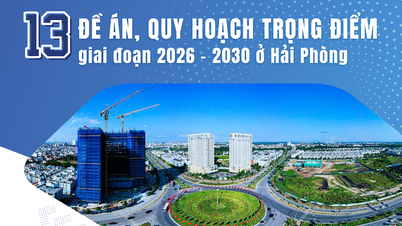

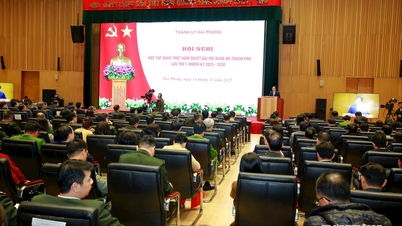
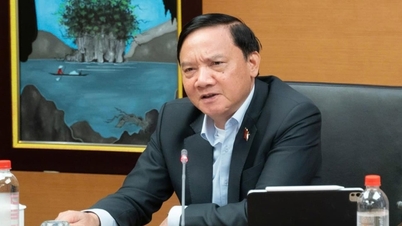



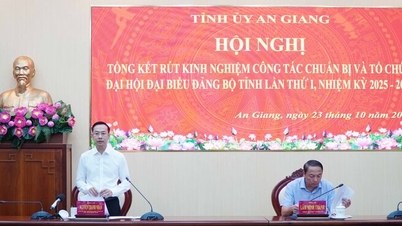

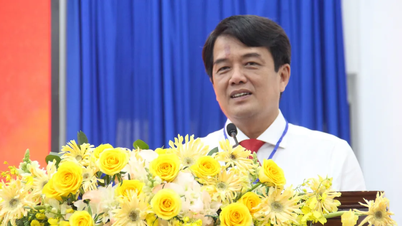







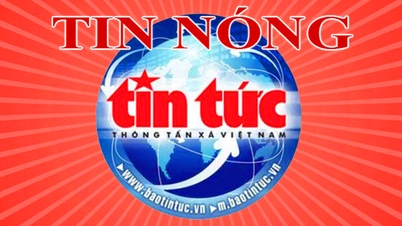




















































































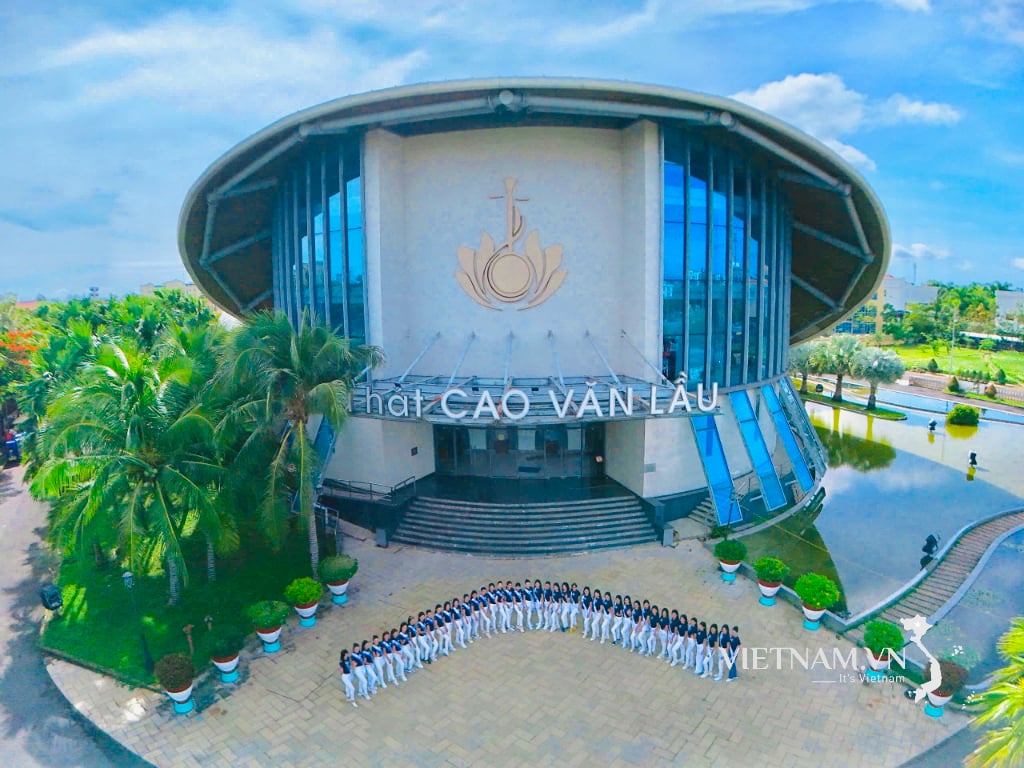
Comment (0)